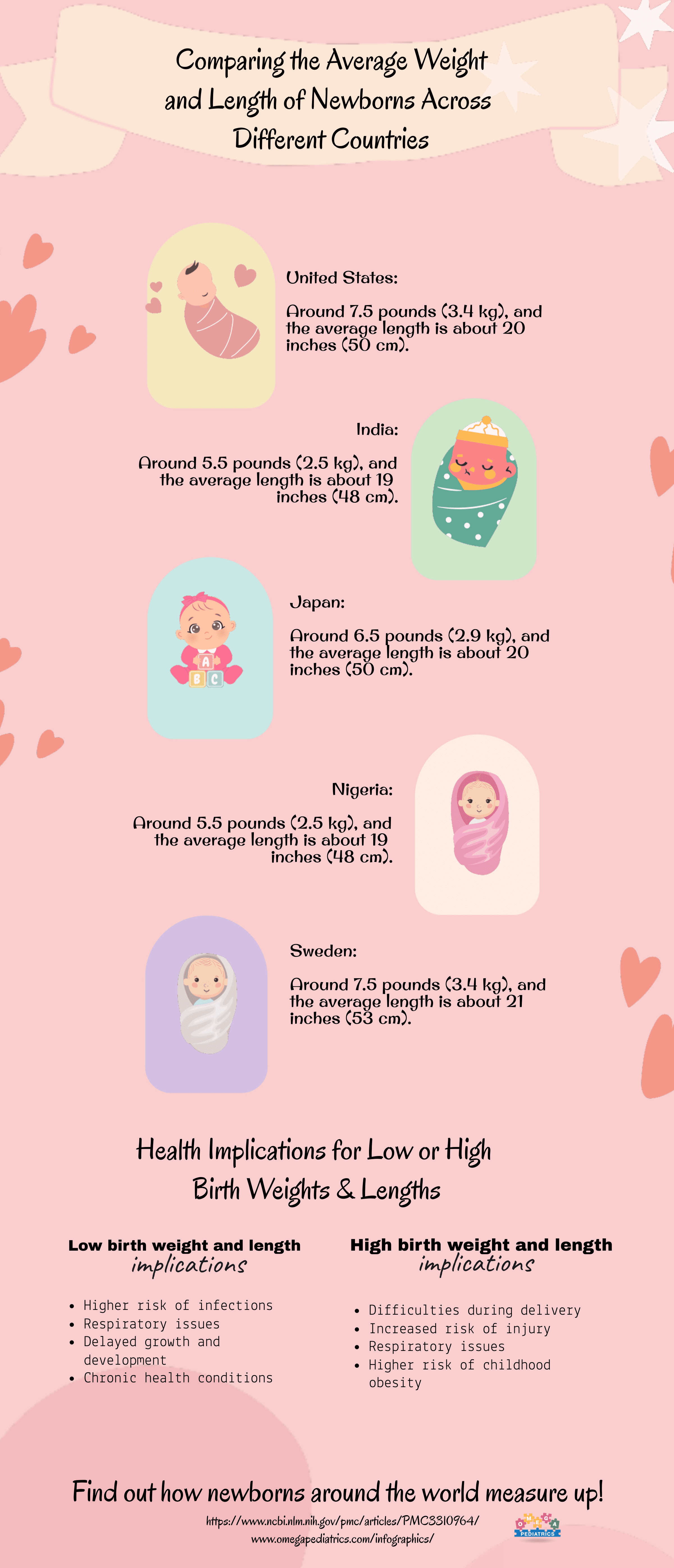
The average weight and length of newborns can vary across different countries due to a variety of factors such as genetics, maternal nutrition, and healthcare access. Here are some examples of the average weight and length of newborns in different countries:
United States: The average weight of a newborn in the United States is around 7.5 pounds (3.4 kg), and the average length is about 20 inches (50 cm).
India: The average weight of a newborn in India is around 5.5 pounds (2.5 kg), and the average length is about 19 inches (48 cm).
Japan: The average weight of a newborn in Japan is around 6.5 pounds (2.9 kg), and the average length is about 20 inches (50 cm).
Nigeria: The average weight of a newborn in Nigeria is around 5.5 pounds (2.5 kg), and the average length is about 19 inches (48 cm).
Sweden: The average weight of a newborn in Sweden is around 7.5 pounds (3.4 kg), and the average length is about 21 inches (53 cm).
Health Implications for Low or High Birth Weights & Lengths
Low birth weight and length can be indicative of several health issues that a baby might face. Low birth weight is defined as birth weight less than 2,500 grams (5.5 pounds), and low birth length is defined as a length less than 50 cm (19.7 inches).
Some of the health implications for low birth weight and length are:
- Higher risk of infections: Babies born with low birth weight are more prone to infections due to their underdeveloped immune systems.
- Respiratory issues: Low birth weight babies are at higher risk of developing respiratory distress syndrome due to immature lungs.
- Delayed growth and development: Low birth weight babies might experience delays in their physical and cognitive development due to their small size and associated health issues.
- Chronic health conditions: Low birth weight babies have an increased risk of developing chronic health conditions such as hypertension, diabetes, and cardiovascular disease in later life.
On the other hand, high birth weight and length can also pose some health risks for babies. High birth weight is defined as birth weight greater than 4,000 grams (8.8 pounds), and high birth length is defined as length greater than 57 cm (22.4 inches).
Some of the health implications for high birth weight and length are:
- Difficulties during delivery: Babies with high birth weight can be more challenging to deliver vaginally, which can result in complications for both the baby and the mother.
- Increased risk of injury: High birth weight babies can be at higher risk of birth injuries such as shoulder dystocia and fractures.
- Respiratory issues: High birth weight babies are at a higher risk of developing respiratory distress syndrome due to their underdeveloped lungs.
- Higher risk of childhood obesity: Babies with high birth weight are more likely to become overweight or obese in childhood and later life.
It is important to note that birth weight and length are not the only factors that determine a baby’s health outcomes. A range of other factors, including maternal health and nutrition, prenatal care, and genetics, can also have a significant impact.



